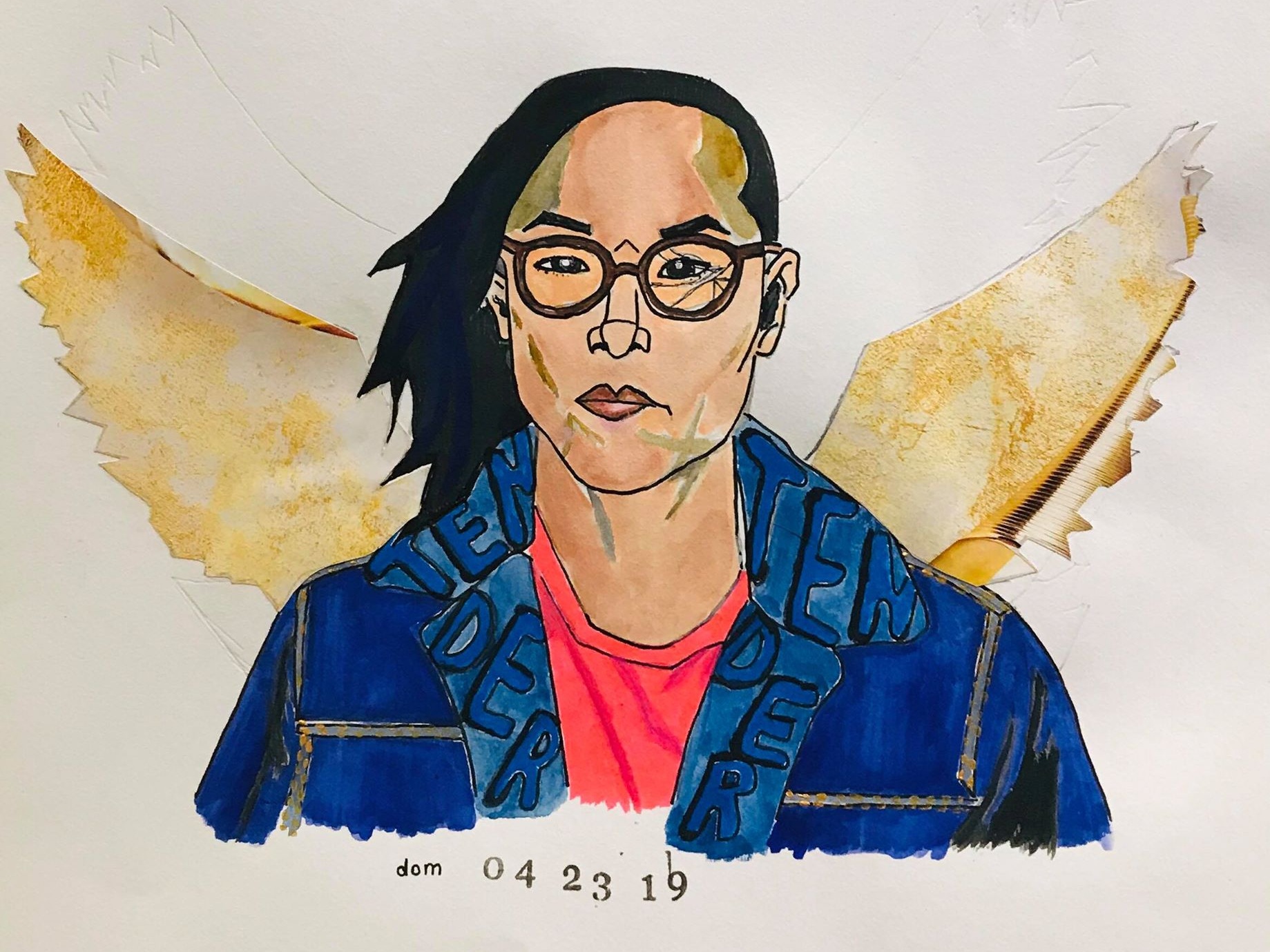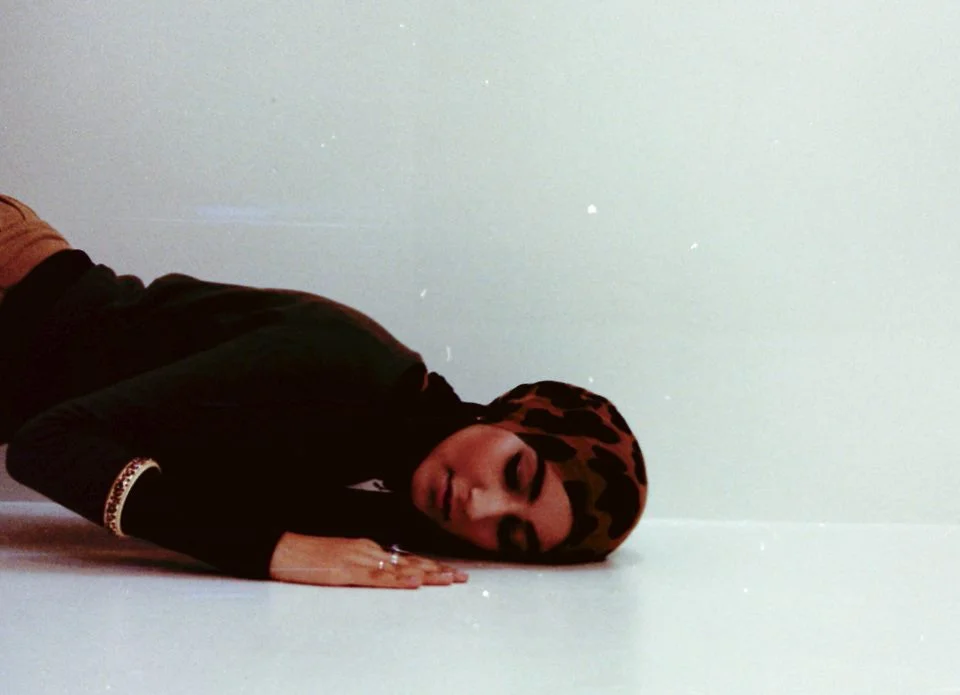Photo by Eli Sleepless
I’m unsure when I walk into therapy for the first time. It’s free on-site college counseling. Nothing fancy, and my therapist seems gay. Subconsciously, I relax. Through the three free sessions my expensive private university allows per semester I divulge some kind of sense of soul to this stranger. He tells me I have “an anxiety problem” that manifests in bodily shivers, sweat, and phantom pressures on my chest, forehead and ears. I tell him my chest, forehead and ears are the most unrealized parts of my body and he recommends sleeping on it. I’m not sure what to say in return, unsure what to say to someone who readily tells you to deal with a problem of unreality with more sleep. I nod every time he repeats my words back at me, certain that in this process of semantic back and forth I’d eventually, somehow, catch a solid sense of meaning.
At nineteen nearing twenty, time is fake but technically I have half a day left as a teenager, I constantly feel like I’m in the wrong place, the wrong school, the wrong country, the wrong world. As a queer POC with immigrant parents and a family history of mental illness, I’ve found myself consistently dealing with pronounced dissociative and bipolar tendencies that effect my daily life in subtle but sustained ways. Sometimes this manifests in stretches of time when life seems to snap and bend like a poorly-maintained hair-tie, sharply bringing me from moment to future moment without the requisite in between. Sometimes this manifests in physical displacement, wherein a sense of unshakeable unreality heightened by inexplicable mental shifts chops me bodily into intangible pieces of what’s not there.
In college the theme of displacement creeps into our seminars: population displacement, self-displacement and where these things go on to afterwards. In Buddhism the principle of Annica, or Impermanence, tells us all things eventually move, pass on, leave. The problem is, this otherwise relaxing ideal isn't always relaxing when coupled with dissociative tendencies. Annica, then, is just a familiar recognition of uneasy unfamiliarity, a reinforcement of what I know and suppress on a daily basis: that this world doesn't want me.
What do you think of that? His words snap me back, and I answer: Nervous, confused. Unclear. He tells me baggage from the past might be effecting my current experiences. When I don’t tell my therapist I think he’s off-track, he continues to tell me that something like anxiety might come from childhood expectations. I’m uncomfortable, and my forearms begin to sweat. “Something like anxiety” sounds like a fun indie flick I’d stream on Netflix instead of going to therapy. I flinch the next time and every subsequent time he says the words “childhood expectations” softly and in a way that seems like he believes normal inflection might be too frightening for the patient. I turn over the words in my head over and over, “childhood expectations, childhood expectations, childhood expectations,” and eventually doze off.
I breathe in, out and gently drift back to focus. As I leave teenage-hood behind, I've realized that I'll never be in the right place. Strong, successful systems of suppression will never stop supplanting the failures of their own valuation, but continuing forward I’m working to reject exclusionary values and re-habituate myself in corroboration of another: one bent on radical inclusion as liberation. The rotten empowered have come across as such in the powerful examples set by the #MeToo and #NeverAgain movements, but on a day to day basis queer lives have continued to be simultaneously stifled and cut short under the auspices of a prismatic value system that remains violent as it seeks shelter in subtlety, that remains violent as it reports to be supportive, that remains violent as it maintains a mask of pacifistic curiosity.
My therapist asks me to sign my name on an intake form the first time we meet. Then he tells me that everything said in this room will remain in between the two of us. He asks me why I came in today, and I wonder if I can tell him so much.
We need community support to continue publishing!
Articles and artwork like these are only possible through your contributions. Please donate today to sustain the wellbeing of artists, writers, healers, and LGBTQ2IA+ people of color.
You can also support our team by picking up
a Rest for Resistance print zine, bag, or shirt.
Image description:
A person with long pink hair is dancing in a venue, head down, hot-pink hair covering her face. She is wearing a light blue dress that has small pearl buttons down the front and a long pleated skirt. One hand is behind her neck; the other, in front of her face.
About Daniel Nguyen:
Daniel is a writer and journalist. Originally from Sugar Land, Texas, they currently study journalism in New York and hope to pursue long-form creative nonfiction in the near future. Daniel is passionate about community engagement and social advocacy through creativity. Their writing focuses on minority experience.
About Eli Sleepless:
Eli Sleepless is a self-taught latinx film photographer. Their genderqueerness and nyc upbringing is important to their work. Find more of their work on tumblr, instagram, facebook, and our main page.

















Whether you have a little privilege or a lot, it’s easy to feel helpless when considering the scope of systemic oppression. Growth is always possible, so once we accept the need to change, the only question is how.